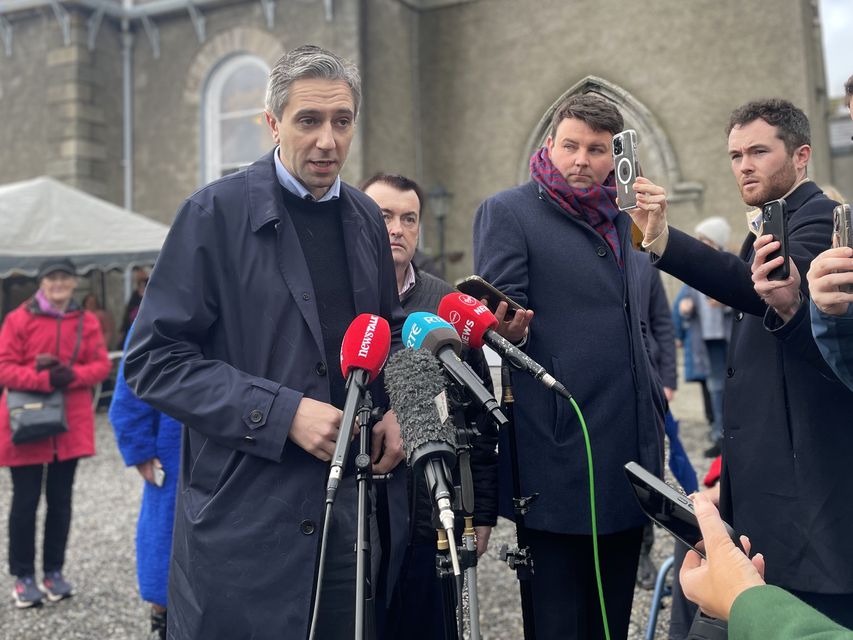There is a requirement for stable Government in Ireland with experienced figures at the helm following Donald Trump’s US presidential election victory, senior Fine Gael members have argued.
As anxieties grow over potential changes to US tax and trade policies, Taoiseach Simon Harris said the country needed the next government to “hit the ground running”.
Mr Trump has said he would cut the corporate tax rate for companies that made their products in the US to 15% and increase tariffs on foreign goods.
Mr Harris said there could not be “months of paralysis” in government formation talks following the Irish election, due to the potential impacts of decisions taken by the next US administration.
Taoiseach Simon Harris rejected claims he risked overhyping the potential problems and talking them into reality (Grainne Ni Aodha/PA)
By way of an example, the Fine Gael leader said Ireland could lose 10 billion euro in corporation tax if just three major US companies left the country.
He said that from his phone call with Mr Trump, he believed the next US leader was “serious about pursuing the policies that he campaigned on”.
He said the European Council had already discussed the issue of certain EU countries being particularly exposed to trade shocks.
Mr Harris rejected the assertion that he risked overhyping the potential problems and talking them into reality.
He added: “It would be utterly irresponsible in a general election not to discuss it, but I do think it’s entirely manageable.”
The Fine Gael leader said if he was personally re-elected as taoiseach, he would “engage immediately” with Mr Trump and EU counterparts.
Mr Harris said this would be one of his key messages to voters in the remainder of the campaign, alongside cost-of-living measures and the party’s approach to public spending and investment.
“I remain extremely optimistic about this election. This is a three-way tie (with Sinn Fein and Fianna Fail), anybody can yet come out as the largest party, and we’re going to work tirelessly until 10 o’clock on Friday,” he said.
His party colleague and public expenditure minister Paschal Donohoe argued that November 29 represented the most important election he had ever contested.
Mr Donohoe, who became a councillor in 2004 and first contested a general election in 2007, said the world was “changing very rapidly”.
He said: “It’s a time of multiple wars, it’s the time in which the consensus in relation to global trade and tax policy is now beginning to change.
“And because we are a small, open economy at the heart of the global economy, all of those changes really matter to us.
We need your consent to load this Social Media content. We use a number of different Social Media outlets to manage extra content that can set cookies on your device and collect data about your activity.
“It’s never mattered more to elect a stable government that has the ability to take our country through what could be times of challenge, and a stable government that has within it people who’ve been around for dealing with other challenges in the past.”
Mr Harris said the next Government would benefit from Fine Gael in government because the party was a member of the EPP, the EU’s largest political grouping, and because Mr Donohoe had been the president of the Eurogroup.
The Taoiseach said it was “absurd” that other political parties were suggesting billions of euro more in increased spending amid a “significantly increased” risk of transatlantic trade shocks following Mr Trump’s election victory in the US.
Mr Harris said: “I think that is actually an irresponsible and reckless thing to do at this moment in time.”
In relation to Sinn Fein in particular, Mr Donohoe accused the largest opposition party of not engaging with other countries in Europe, adding: “As opposed to us seeing the European Union and the euro as the best way in which we can secure our national interests.”
Mr Harris went on to rule out a coalition with Sinn Fein, adding that he did not find the party’s policies compatible with Fine Gael “in any manner or means”.
